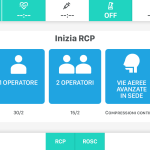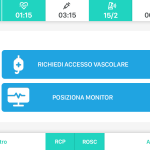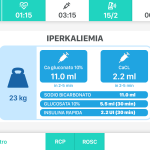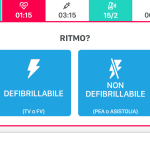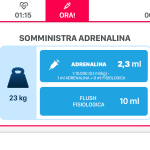PediAppRREST
- Year: 2019
- In collaboration with: University of Padova
The Project
Based on such a bacgkround information, the objective of the PediAppRREST project has been to develop a new audiovisual interactive App for tablet, named PediAppRREST (click here to download the app from the official store), to support the management of PCA and to test its usability in a high-fidelity simulation-based setting, thanks to the collaboration of a pediatric research team of the University of Padova and HMI designers, Human Factors experts, and App software developers of RE:LAB.
Objective
This project aims to develop a new audiovisual interactive app for tablets, named PediAppRREST, to support the management of PCA and to test its usability in a high-fidelity simulation-based setting.
Methods
A research team at the University of Padova (Italy) and human-machine interface designers, as well as app developers, from an Italian company (RE:LAB S.r.l.) developed the app between March and October 2019, by applying an iterative design approach (ie, design-prototyping-evaluation iterative loops). In October-November 2019, a single-center nonrandomized controlled simulation-based pilot study was conducted including 48 pediatric residents divided into teams of 3. The same nonshockable PCA scenario was managed by 11 teams with and 5 without the app. The app user’s experience and interaction patterns were documented through video recording of scenarios, debriefing sessions, and questionnaires. App usability was evaluated with the User Experience Questionnaire (UEQ) (scores range from -3 to +3 for each scale) and open-ended questions, whereas participants’ workload was measured using the NASA Raw-Task Load Index (NASA RTLX).
The re-design and development of the PediAppRREST app continous under the Ambitious project,which includes incorporating third-party sensor data. This effort is further supported by a training simulation study, as detailed on the AMBITIOUS project (https://ambitious-project.eu/)
Next project
TrendER Observatory
Keep in contact.
If you are interested in collaborating with us or if you would like information about our services, please contact us and we will be happy to help. Let’s get in touch and make something great happen.

